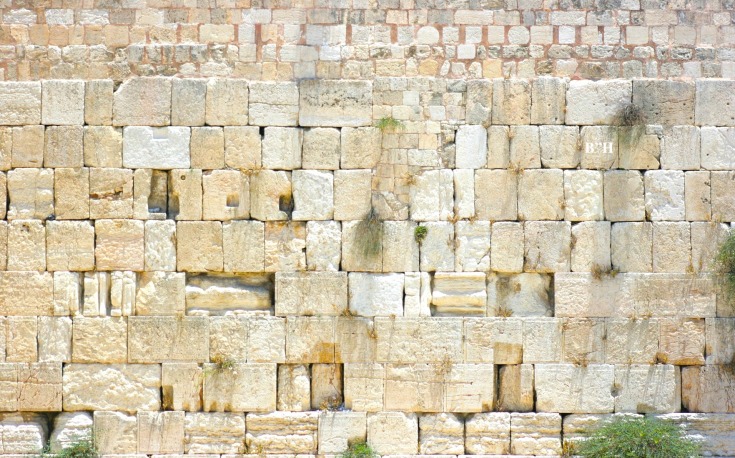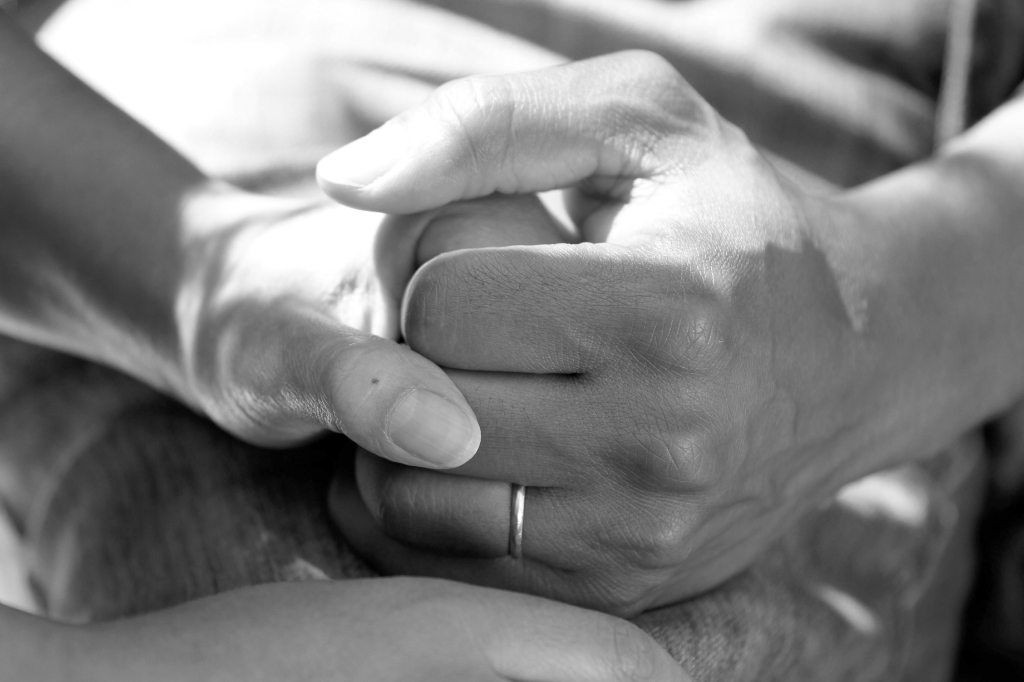Understanding Child Loss is Impossible for a Parent Who Has Never Experienced It
After I lost my son, during the week of shiva people were coming to our home saying ‘May G-d comfort you among the mourners of Zion and Jerusalem’. These are the traditional words of consolation said to Jewish mourners. But I would think ‘Thank G-d they never lost a child. They can only imagine what child loss feels like, but they’ll never really know’. A father who lost his daughter the same age as my son came to offer words of comfort. Even though this parent shared a similar experience, I still felt as if I was mourning alone.
May G-d Comfort You Among the Mourners of Zion and Jerusalem
Why do we say this short phrase to comfort one mourning a loved one? The basic interpretation of this statement is that the mourner’s emotional pain is also the pain of the community. Just as Jews are grieved over the loss of the Holy Temple in Jerusalem, all Jews share the loss of the individual as well. Hence, other Jewish people share my grief. Even though our Holy Temple is physically gone, its soul and the soul of Jerusalem, the Holy City, still remains. Thus, even though Jacob is not physically here, his soul lives on and is still with me.

Just as G-d promised that Jerusalem will be rebuilt and the Holy Temple restored, He also promised that my son, together with the rest of our people who have passed on, will once again live in physical bodies in time to come.
In My Grief I Couldn’t Find Comfort in Comforting Words
When my son died, these customary words of consolation seemed to have little meaning. I thought ‘These people mean well, but Jacob is gone and I just don’t feel any comfort. And the phrase ‘May G-d comfort you…’ made even less sense.
How is G-d comforting me? G-d took Jacob away in the first place and now He’s offering solace? It didn’t make sense to me. I didn’t hear a booming voice from Heaven eliciting words of comfort. I didn’t hear G-d talking to me. These visitors to my home were the ones trying to offer comfort and I couldn’t take comfort from them. I just didn’t see G-d in the picture at all.

Although people tried to comfort me in my grief, I didn’t find comfort in their words.
G-d is the Only True Place of Consolation
When I began to contemplate the deeper meaning behind these words, the phrase ‘May G-d comfort you…’ began to have more significance. In Hebrew, this declaration refers to G-d as Ha Makom, translated as ‘The Place’. Why is He called ‘The Place’? Chassidic philosophy explains that G-d exists within every single creation. For example, when we say in the Shema prayer G-d is ‘One’, we’re not just saying that there’s only one G-d. What we’re really saying is that G-d is the only existing being, we are all a part of Him, and He fills every aspect of creation. We also affirm this concept in the prayer Adon Olam. If G-d and the world were two separate entities, we would say ‘Adon HaOlam’, master of the world. Instead we say Adon Olam, as if to say G-d is the Adon (Master) and he is also the Olam (world). In other words, reality doesn’t consist of G-d and a world. G-d is the world, hence He is ‘The Place’.
I’m Pained Over Losing My Child, and So is He
Since all of creation is a part of G-d, it’s easy to understand how He knows what’s happening with each and everything He created. For example, I know what’s going on with each part of my body, and one part of my body experiences pain, I know it immediately. Similarly, He knows what’s going on with every created being and when one of His creations is in pain, either physically or emotionally, He feels that pain as well. We see this concept described a number of times in our Holy writings:
“…In all their sorrows He is saddened…” (Isaiah 63:9)
“…I am with him in distress…” (Psalms 91:15)
“…Says the Holy One, Blessed be He, ‘If I punish them, the pain is Mine’…” (The Palm Tree of Devorah, chapter1, section4)
Thus, no one really knows the pain of child loss except G-d Himself. We are all His children. The parent who lost his daughter can relate to my pain at some level but he still is unable to know my particular pain and anguish because he’s not me. Just as my grief penetrates to my very essense, so too, my pain at some spiritual level affects G-d as well because I’m a part of Him. So I wasn’t really mourning alone. G-d was right there mourning with me. It’s as if G-d is saying to me ‘I know this hurts, but I had to do it for the good. I feel sad with you’.
Praying For G-d
One of the most well known Chassidic leaders, Rabbi Levi Yitzchak of Berditchev (1740-1809), has a novel insight on how to make our prayers more effective. We normally think of praying to G-d, but we really should be praying for G-d. When asking that G-d fill our needs, we can turn our prayer around to pray for G-d’s needs. For example, if I ask someone to build a house, I have to supply him with the tools he needs to do the job. What does G-d need? He needs us to make a dwelling place for Him in this physical world by performing his mitzvos and doing acts of kindness. Only then can His presence be openly revealed. So, He has to give us the means to accomplish this task.
How To Strengthen Our Prayers
So we ask Him for health, a livelihood, healthy children, and lots of other things so we can do as He requests. When we pray for health, we’re really asking for the ability to do His will with an energized body and a clear head. We’re praying for the health of the Divine Presence so the world can function as it should without pain or suffering. When we pray for a livelihood, we’re asking that He provide us with the money to provide for our physical and spiritual needs, ie, to give tzedakah (charity), give our children a good education, to have all we need to celebrate and observe Sabbaths and the holidays in happy frame of mind.
There should be no want or deprivation in the King’s house. When we pray for healthy children, we’re really praying to bring more children into the world who will perform G-d’s will. It’s not presumptuous of us to ask G-d to give us the tools we need to do the job He wants us to do. We can sincerely ask Him to fulfill all our requests for His sake. Our prayers will be so much stronger.

For parents who mourn a child, prayer can be a source of consolation.
We’re Never Mourning Alone
I wasn’t mourning alone. G-d is intimately involved with all his creations including me. When we suffer, He suffers. He feels our pain. When we grieve, He grieves with us. Only after Adam and Eve ate from the forbidden fruit did G-d bring death into the world. Death was never a part of His plan for creation. And even after death became a reality in this physical world, there’s supposed to be some sort of order. Children are supposed to bury their parents, not the other way around. Parents burying their children is a physical manifestation of a spiritual abnormality in His world. This is not the way G-d wants it to be. So when we pray to G-d to end our suffering, we’re praying for G-d to end His own suffering as well.
For more Torah insight on mourning and consolation read the post by Rabbi Asher Resnick Understanding and Accepting Nechama

If I may, there’s also a notion that if God is “The Place”, meaning that all of us are within Him… both those of us who are alive, and those of us who are no longer living. From this perspective, we’re all always part of the same whole, regardless of whether we experience this, given our mortal limitations.
That is so true. Thank you for your insight.